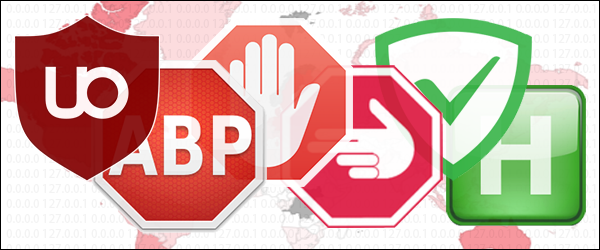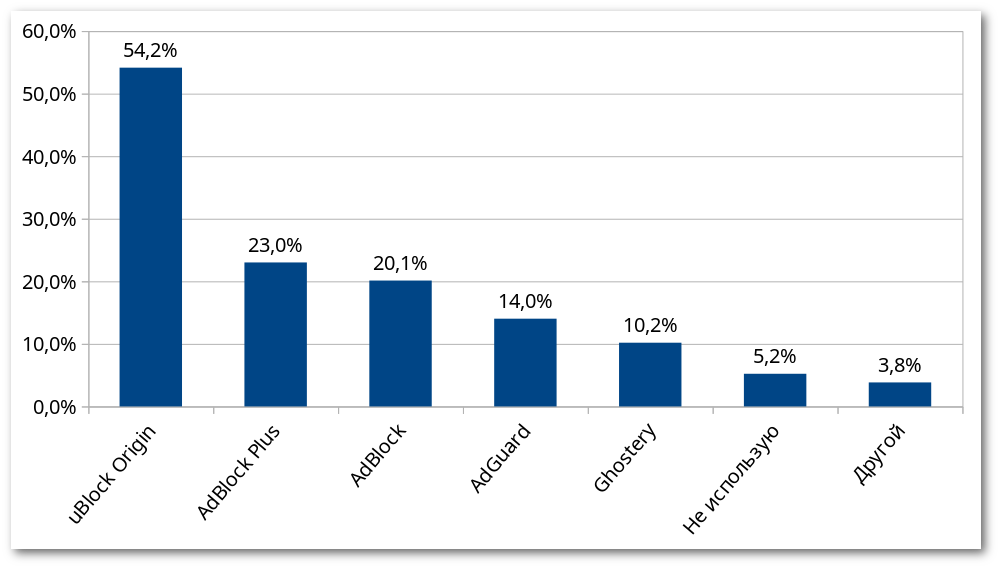Which blocker do you use? results

Hello!
Last week we launched a small vote on the extensions used to block ads and other annoying elements of web pages, and today it's time to look at the results. It should be noted right away that the majority of Vivaldi users consists of technically savvy and experienced Internet users, which is clearly seen in the survey results. In total, almost 1,600 users voted, two-thirds of which were readers of the company’s blog on Habré. Now let's see how the preferences of all those who participated in the voting were distributed.
Actually, the overall voting results:

As you can see, the votes were distributed as follows:
- uBlock Origin - 54.2%
- AdBlock Plus - 23.0%
- AdBlock - 20.1%
- AdGuard - 14.0%
- Ghostery - 10.2%
Slightly more than 5% of users, apparently, are people with iron nerves and do not use ad blockers at all, and almost 4% are fans of custom solutions who prefer to avoid popular trends. These users selected the following ad blockers (in order of number of references):
- uMatrix - 7 people
- AdNauseam - 4 people
- Opera - 3 people
- Brave - 3 people
- Disconnect - 2 people
- pihole - 2 people
- Canvas blocker - 2 people
- Nano Adblocker - 1 person
As well as a host of other blockers, cutters, filters, scripts and other software tools including CanvasBlocker, CookieAutoDelete, Decentraleyes, PrivacyBadger, RequestControl, Canvas Fingerprint Defender, stop reclame, AdGuard DNS, Ads Killer Adblocker Plus, Social Fixer, ScriptSafe, Privacy Possum, Decentraleyes, Cookie AutoDelete, HTTPS Everywhere, Self-Destructing Cookies, custom scripts, etc.
And one more interesting moment. Almost a quarter of all respondents (23.5%) use several blockers at the same time, which indicates the absence of one ideal tool against everything.
Finally, I will answer the question that some users asked in connection with this survey - in fact, why did we conduct it? The answer is simple: this survey will allow us to understand what ad blockers our users use and how actively. This will help to more accurately prioritize future plans for supporting third-party blocking extensions and in fixing custom error messages.
All Articles